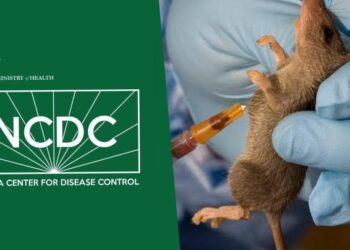For a long time, E. Coli and Salmonella have been considered to be the main bacteria causing food-borne diseases. However, listeria, a deadly bacterium that causes foodborne illnesses, is topping the charts. Listeria has existed for years but it has alarmingly increased in outbreaks in recent years. Both the food industry and the public health sector have been touched by it. This bacteria has returned and is now endangering the safety of food supply not just in particular regions, but all around the world, from deli meats to dairy products.
One of the most notable cases was in 2024, when Boar’s Head deli meats were linked to 59 illnesses and 10 deaths in 19 states. It didn’t end there. In a similar vein, Rizo-López Foods experienced a decade-long disaster involving contaminated dairy products, resulting in 26 illnesses and two deaths. Quite bothersome, don’t you think? Such outbreaks serve as a reminder of the continuous difficulties in guaranteeing food safety and following stricter laws to protect consumers. Let’s first look at the basics of listeria, then discuss treatment and prevention strategies.

What is Listeria All About?
Listeria is a bacterium that can infect humans and cause listeriosis. This bacteria is typically found in contaminated foods, including meat, cheese, and unpasteurized milk. Unlike other bacteria, these germs grow on surfaces and are difficult to remove. Listeriosis can harm anyone, although it most commonly affects babies, the elderly, pregnant women, and those with weakened immune systems.
The process of getting sick from listeria starts when someone eats food that is contaminated with the bacteria. Listeria can get into food at any stage, either from the farm or to the store. It is often found in soil, water, animal products, and even animal feces When you eat food contaminated with listeria, the bacteria enters the body and begins to cause issues. Healthier persons, like those with exceptionally strong immune systems, may experience mild symptoms.
However, in more vulnerable persons, such as those listed above, and particularly those with weakened immune systems, bacteria can travel throughout the body, affecting the bloodstream or the brain. It can cause serious complications such as meningitis and sepsis, and in the worst-case situations, it can result in death.
Treatment for Listeriosis
Listeriosis is caused by bacteria, and bacteria infections are treated using antibiotics. For people with mild symptoms, the doctor may prescribe a course of antibiotics to help the body fight off the infection. But in a case where the infection has spread to the bloodstream or brain, a stronger and longer treatment with intravenous antibiotics will be given through the vein to flush out the bacteria from the system.
Furthermore, when you notice symptoms such as fever, headaches, and muscle aches, you should see the doctor in order to be diagnosed early. Because an early diagnosis will prevent severe complications like meningitis or sepsis.
Prevention of Listeriosis
To prevent listeria bacteria from contaminating your food, you have to practice proper handling of food.
- Always cook meats like poultry and beef, properly to their proper internal temperatures to kill the bacteria in them.
- Stick to pasteurized milk, cheese, and other dairy products, because listeria bacteria easily thrives in raw or unpasteurized dairy.
- Before eating or cooking, wash all fruits and vegetables thoroughly, especially those fruits and vegetables that have come in contact with the soil.
- Make sure you keep food at the right temperatures, especially ready-to-eat and perishable items, because listeria can survive in cold environments.
Bottom Line
In recent years, more people have gotten sick from listeria, showing how hard it is to keep food safe. Listeria is a dangerous bacteria found in foods that has caused numerous hospitalizations and even deaths. This means that we need stricter food requirements to ensure food safety, especially for people with weakened immune systems.

















